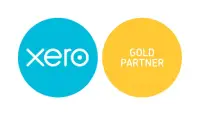I have known about this for years—more than a decade, in fact—and I am sure I am not the only one. There are probably thousands of accountants out there who think the way I do.
For years, we have been hoping and, those who are religiously minded, praying that the ATO never get excited. I am convinced that the reason the ATO has stayed away for so long is because there has been a lot of black magic voodoo dancing going on in accountants’ offices countrywide.
Now I know what you are thinking. What on earth am I going on about?
Well, it seems the ATO has become excited about a particular type of tax, and that is usually not good news for you.
There’s more bad news. That’s because they are getting excited over a complex tax affecting almost every business, even the tiny ones. It is also a tax that is not understood, so the chances of mistakes and poor record-keeping are high.
And I think this will be a real problem over the next few years.
The tax in question relates to the Fringe Benefits Tax (FBT). Our clients are aware of my views on FBT. In fact, this year, we thought it was such an issue that we made sure clients became registered and completed FBT returns even if the result was no tax to pay.
We were right to be cautious.
That is because, according to an FBT tax specialist, there is a growing tax gap estimate for fringe benefits tax (FBT), and as a result, the ATO is getting excited—so excited that their audit rates have risen significantly.
There is a belief that the tax gap for FBT reported by the ATO was around $1.3 billion, which accounts for around a 29 percent tax gap. I think that is underestimated. I think it is larger—much larger. And if that is the case, I think the ATO will not be just excited—they are going to become ecstatic.
FBT is a tax relating to benefits. Many of you may think you or your team do not receive a benefit from the business. And many accountants do not understand the tax either. But most employers do inadvertently give out benefits.
Have you ever taken out a customer for lunch or dinner and ever given them gifts and ever given your team member a gift card? Maybe some flowers? Does the business regularly offer a team lunch or coffee purchases? Have you ever paid for Christmas dinner? Have you been away at a conference, overseas visits, etc? These are all technically subject to FBT. Then, the biggest one of all. Cars. Yes, many accountants tell you they have dealt with any private portion. Still, you can only do this if the business is FBT registered.
And the problem is most are not.
There are around 950,000 registered employers in Australia. There are more businesses that may not even pay out wages but have cars that are used privately. That means the 950,000 is on the low side. But even then, out of that 950,000, only around 100,000 were registered for FBT.
I think most FBT audits will involve cars or privately used motor vehicles. The ATO goes through the lists of motor vehicle registry services and identifies vehicles registered under a business name.
They then check whether they are registered for FBT, whether they are lodging FBT returns, and whether they include vehicles in those returns. If they are not, expect an audit. Then, they will go through the other benefits to see if FBT is due.
Usually, when the ATO undertakes an audit, it will likely go back three or four years, but I know of situations where they’ve gone back as far as 12 years. In that case, the employer reconstructed their logbooks based on diary notes and other records. They lodged FBT returns based on these, but when the ATO did their audit, they found that toll records did not match the logbooks.
FBT is an expensive tax. The rate is a flat 45% even if you are paying a company tax rate of 25%. Because cars are expensive assets to hold and run, private amounts can quickly add up. Private use of motor vehicles of $10,000 a year is not unusual. Over four years that is $40,000. You do not need to be Einstein to work out that 45% plus interest plus fines is going to be a big figure.
If you are concerned about FBT, what should you do?
- Make sure your business is registered! If you are not registered and provide benefits you really are stuffed as you have no defence
- If you have a motor vehicle, make sure you either
- Completed a 12-week logbook (and do not try to reconstruct it as it will go wrong)
- Declare private use using the 20% operating method
- Keep good (very good records) of all potential benefits given by the business. If you have a bookkeeper, they should be doing this for you. If you do it yourself, be careful. Be very careful.
Paying the least in taxes is step 2 of our 9 steps to working less, earning more and creating wealth. If you would like to know more, contact Hitesh@wowadvisors.com.au or Ros at ros@wowadvisors.com.au or call us on 07 3161 9548.




